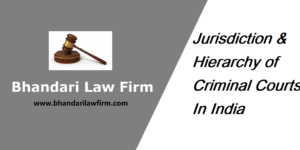Life is unpredictable
What is Will : You never know what’s going to happen. While we hope that nothing bad will happen to you, it’s better to be prepared than unprepared. As Ben Franklin said, “an ounce of prevention is worth a pound of cure” – and we couldn’t agree more. Above all, you want to have final say in your medical decisions. If something happens where you can’t communicate your preferences, that’s where a living will can step in and be your voice.
What is will? 
A will is a legal document which declares the intention of the testator with respect to his property which he desires to be carried out after his death. It reflects the last wishes of the person for the manner in which their property will be divided post their death.
Section 2(h) of the Indian Succession Act, 1925 defines Will as “the legal declaration of the intention of the testator, with respect to his property, which he desires to be carried into effect after his death”
Why will is to be Execute?
A will has a lot of benefits. Mainly a will helps distribute assets and property as per wishes of the testator, reducing uncertainty and family disputes during emotionally difficult times. A makes transfer of assets convenient and easy; it is easier to transfer and settle an estate with valid will. Transfer of assests like property, bank accounts, policies etc becomes much simple and cheaper.
How does a will get executed?
Often, the executor of the estate will file the will, because the executor will work closely with the probate court throughout the process and is also responsible for executing the will’s instructions. Most states also have laws that require someone with a deceased person’s will to file it with the court
Who may execute a will?
An executor is someone named in a will, or appointed by the court, who is given the legal responsibility to take care of a deceased person’s remaining financial obligations. This means taking care of everything from disposing of property to paying bills and taxes.
Generally, an executor is someone specifically stated in the will or a person close in relation to the testator generally spouse, children and siblings. The Executor has the power to:
- sue on behalf of the deceased testator
- dispose of the asset of the deceased testator in accordance with his wishes
- incur expenses for the management of the assets or the estate of the deceased until its disposal.
Who notifies beneficiaries of a will?
The executor is obliged to notify the beneficiary that she is named within the will, and to provide her with information regarding what she is to receive.
However, the beneficiary is not entitled to receive, appraise or view her inheritance until probate completes and ownership of the property transfers to her.
What are the conditions of valid will?
Section 59 of Indian succession act says that
“Every person of sound mind not being a minor may dispose of his property by Will.”
The person should be free from undue influence/ fraud/ coercion, and the making of a Will should be a Voluntary act.
The testator should sign or affix his mark (e.g., thumb mark). The Will must be attested by 2 or more witnesses. The witnesses must have seen the testator sign or affix his mark to the Will; or Received an acknowledgment from the testator that he has signed the Will. Each witness shall sign the Will in the presence of the testator. The witness should not be a beneficiary under the Will.
Do you need a lawyer to execute a will?
Not all executors, however, need to turn a probate court proceeding over to a lawyer or even hire a lawyer for limited advice.
If the estate that you’re handling and doesn’t contain unusual assets and isn’t too large, you may be able to get by just fine without a lawyer’s help.
When Will comes into picture?
Will comes into picture when a person dies leaving behind his assets either movable or immovable.
If a will has been executed by him, then distribution of those assets has to be done according to the will.
Who may be beneficiary in a will?
A beneficiary is a person or organization who receives money or property because someone specifically names them in their Will or trust.
Beneficiaries can include charities, places of worship, a decedent’s close friend or even his pet cat. If you are specifically named in a Will, you are considered a beneficiary.
(Click here to know about our Civil Practices)
How Will to be proved?
1) Section 68 of evidence act provides that examination of at least one attesting witness is required to prove the will.
2) If both the attesting witnesses are dead then will can be proved by other evidence; examination a witness who can identify the testator signature on the will .
How Will is to be challenged?
A will irrespective of its registration can be challenged on the following grounds,
- Fraud
- Coercion
- Undue influence
- Suspicious nature
- Lack of due execution, testamentary intention, testamentary capacity, knowledge and approval
- Forgery
- Revocation
Whether Will must be registered or not?
In India, registration of Wills is not compulsory. A Will is not a compulsorily register able document under section 17 of the Registration Act, 1908, (Act). According to section 18 (e) it is the testator’s choice as to whether he wishes to register it. Once a Will is registered, it is placed in the safe custody of the Registrar and cannot be tampered with, destroyed, mutilated or stolen. However, non-registration of a Will does not lead to any inference against its genuineness. It doesn’t have to be executed before a notary public.
What is Status of unregistered Will?
The primary aspect of a WILL to be legally valid is 2 persons attesting witness to the will when the testator signs in their presence. When only one person has signed as witness then it is not a valid Will. Will need not be registered. A will which is not registered is valid if it is signed by two attesting witnesses.
What is the impact or registered and non registered will?
It is not mandatory to register a will, thus a valid will which is not registered will prevail and there is no reason to doubt its authenticity. Even if a registered will exist prior to unregistered Will, then unregistered Will will prevail.
Whether probate of will is mandate or not?
Under Section 219 of the Indian Succession Act, 1925, if the deceased has died intestate and was not a person belonging to any of the classes referred to in Section 218 (i.e, Hindu, Mohammedan, Buddhist, Sikh or Jain or an exempted person), those who are connected with him either by marriage or by consanguinity are entitled to obtain Letters of Administration of his estate and effects in the order and according to the rules framed in this section.
Under Section 212(2) of the Indian Succession Act, 1925, Hindus, Muslims, etc. are not bound to apply for letters of administration (Probate). It is optional and not mandatory for these persons to seek probate of the Will.
What is time limit to file probate petition?
The time limit to file probate of is not prescribed, however it must be file as soon as possible after the death of Executor or earliest from the date when Will came into knowledge.
Can the executor of the will change the will?
By law, an executor owes each beneficiary of a Will a fiduciary duty. … If the executor does not carry out the requirements set forth in the Will, or otherwise harms the assets of the estate, the beneficiaries can challenge the actions of the executor in probate court.
Does Will validity after death?
However a validity of Will can be challenged within 12 yrs of it becoming enforceable (death of testator). So an argument can be made that a Will becomes absolute after 12 yes from the death of the testator. A Will is valid forever made with free consent until unless declared null and void by competent court of Law.



